Morris EV, Britain’s Retro-Tastic Electric Van, Might Actually See Production Soon
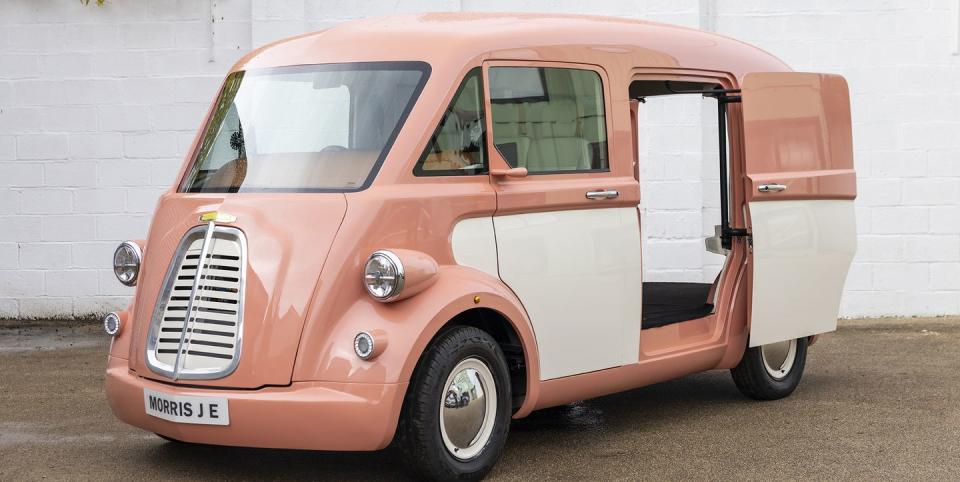
The eyes of retro enthusiasts, Great Britain division, bugged out when a prototype electric van inspired by England's classic Morris J-Type (introduced in 1948 and built through 1961) broke cover in 2017. It's outwardly a faithful tribute to the iconic original—a common sight in postwar Britain and the Commonwealth nations. The re-creation's maker, Morris Commercial, claimed the reimagined machine would boast not just its inspirer's adorable, bug-eyed looks and same world-beating volume-to-footprint ratio, but also electric power and a body made from scrap carbon fiber. As with all automotive startups, however, the devil has been going from prototype to production, and the road getting there is long and rocky.
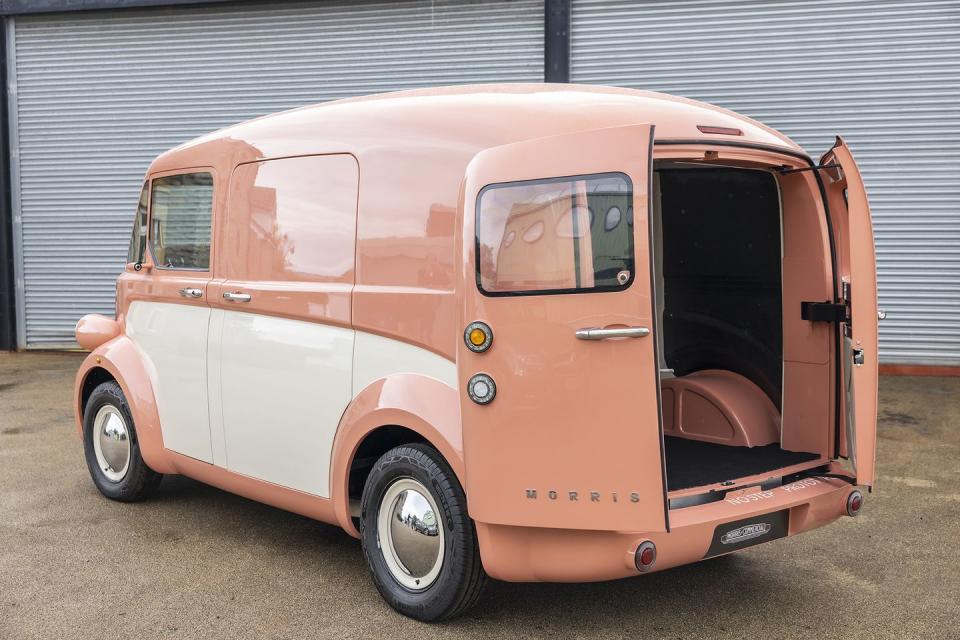
Though it has but two prototypes to show for itself five years on, one of which we would drive, the story of Morris Commercial spans close to a century. With an international cast of characters, it's a stemwinder of a tale, albeit one whose last chapter has yet to be written.
Brace Yourself for a Bumpy Ride
Morris Commercial Cars was the world's largest commercial-vehicle manufacturer in the 1950s. In 1968, the one-time BMC brand was folded into the nationalized conglomerate British Leyland and saw its name retired. From there, it became a winding path: its parent company was renamed, merged, bought out by management, and sold to a private equity firm and then to Russian owners. In 2009, now called LDV and again headed for bankruptcy, the company had its assets acquired by Qu Li's Eco Concepts, a purchase that generated much tabloid interest.
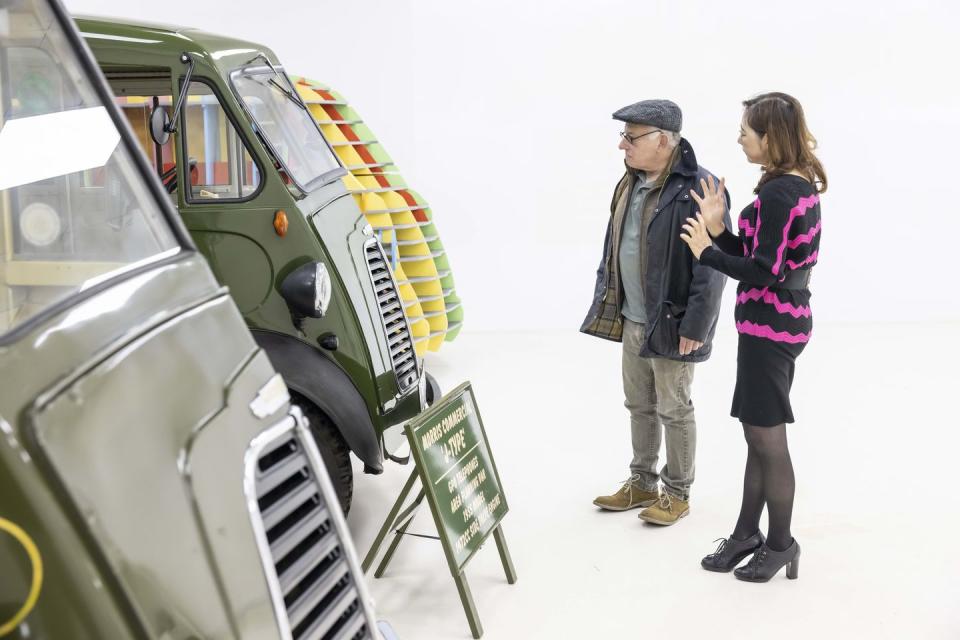
A China-born engineer with family ties to Shanghai Automotive Industry Corporation (SAIC), Li, who had emigrated to the U.K. years earlier but traveled extensively between the two countries, quickly sold many of the assets of LDV to SAIC. Li was an outlier in the British industry for being a woman and Chinese, and she faced harsh criticism for having worked closely with the "Phoenix Four." That was the briefly celebrated quartet of British businessmen who rescued MG Rover from extinction for minimal personal investment in 2000 after BMW pulled the plug, only to drive the firm into bankruptcy while walking away with large piles of cash. Their actions led to the British government's disqualifying them from holding any corporate directorships. Heightening the Phoenix story's tabloid appeal, consultant Li was reported to have had a romantic relationship with one of the disgraced quartet, Nick Stephenson. Thanks to her, many of the British firm's assets were sold in bankruptcy to China, where both her parents worked in the auto industry and where her connections clearly helped.
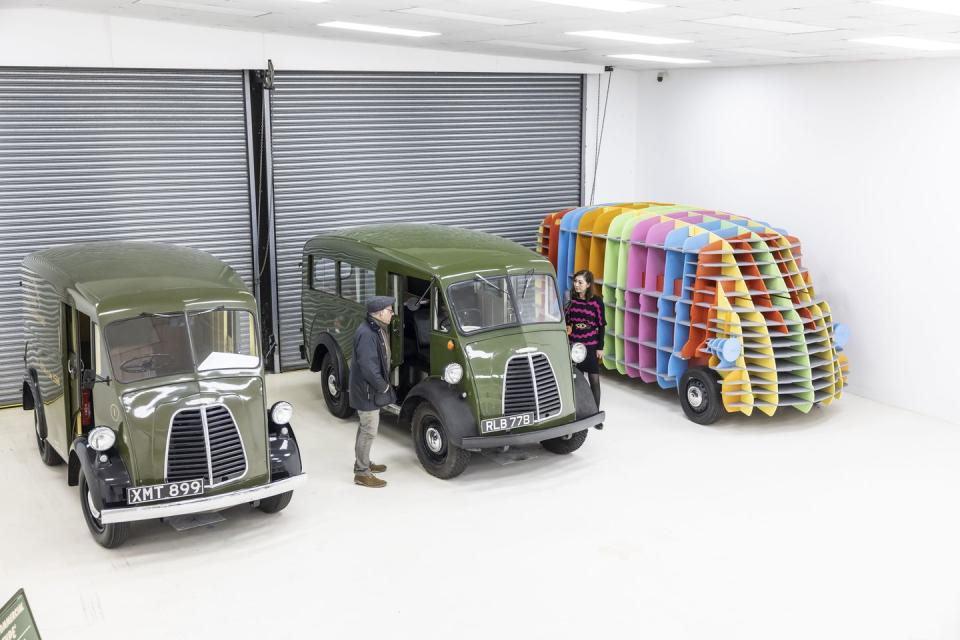
But Li, who has lived in Britain for more than 30 years and holds Ph.D. degrees in mechanical engineering and materials, claims her goal is to help restore Britain's vehicle industry. With this in mind, she kept the Morris Commercial name and intellectual property for what she hopes will be her big play.
It Looks Sincere from Here
While public enthusiasm for the cute EV van known as JE has been enormous, the British popular press has expressed considerable skepticism about the venture. But if Li's goal was merely to make some quick cash, our recent visit to the company's headquarters in the sleepy Cotswolds village of Hinton-on-Green, suggest she's chosen a funny way to do it.
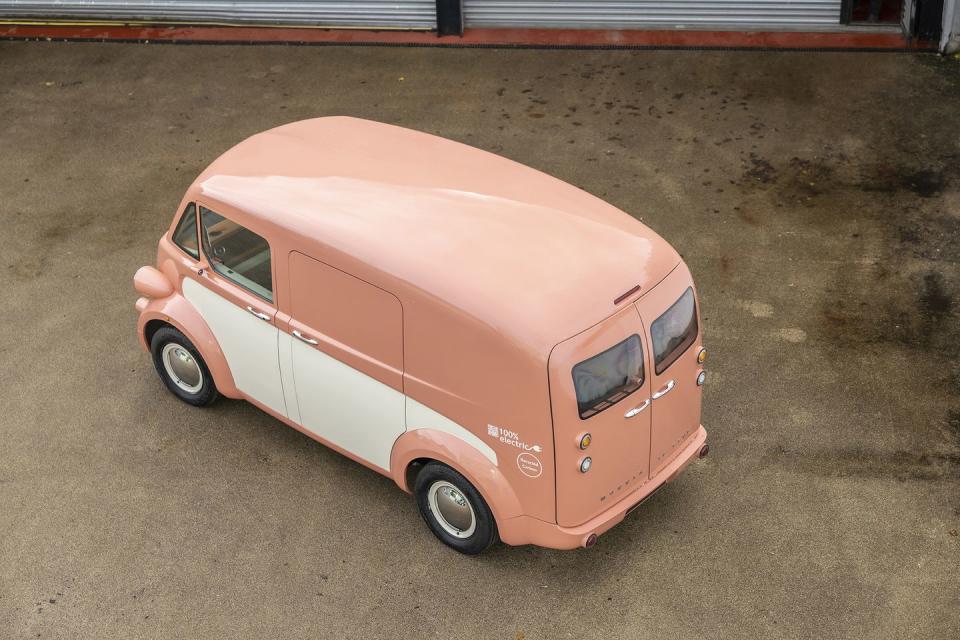
For instance, unusually in these days of electric-car fever, Li said the company will not be taking customer deposits until the siting of its small-production factory is confirmed. Before then, it's "irresponsible to take their money. We also agreed that money will be put aside in an escrow account. We will not touch that money until we come to the point when we can say [choose your vehicle]." Nor will there be an IPO before then. Wise choices, both, we'd say.
We met with her at the company's property, on the bucolic site of an old train station, where a series of cleverly conjoined shipping containers provide office space for a skeleton staff of 15. "The facility is quite small moment, but we are in the process of finding a manufacturing location," she said, suggesting that a pilot production line might be running by the third quarter or fourth quarter of 2023. Limited production is the goal. "We are going for small-volume production, a bit like a Morgan.
"We're working really hard on a shoestring, with very small core team, because when you're growing too fast, you've lost control. You just spend money for no reason. We didn't do that. We are quite small still, but we are expanding now—[it's] a little bit scary really, trying to get people and expanding.
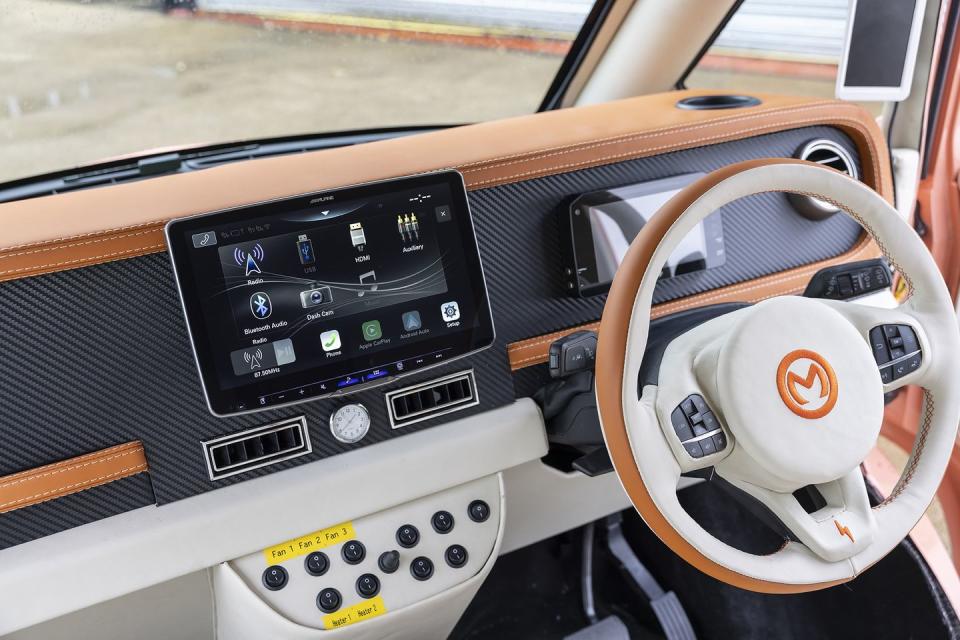
"For me, I think we will have succeeded when we start to deliver to the customer with a reasonable order book and deliver vehicles that people are happy with. A reliable product. But all products need further development. From that point, it really needs bank investment to get to volume production." From there, Li and Morris Commercial executive John Killick explained, the goal will be to take on substantial outside investment, even possibly selling the company on to others with deeper pockets.
With her background in light trucks and vans, Li said, she became convinced that a purpose-built EV was the best strategy. But why use the form of the J-type? "It's a classic design. I've been involved in van production quite a bit, but I don't really believe vans have to be ugly or have to be white, because I like pretty things."
Picture This Van with a Red Bull Logo
Proof of the wisdom of Morris Commercial's retro strategy, Li said, has come in visits from Red Bull and the Royal Post Office (which bought one-third of the original J-type van's production), both of which have expressed interest in the van with the old-school looks and modern purpose-built electric architecture.
"The gross weight of our vehicle is 2.5 tons, which is lighter than the smallest van in the sector currently. But ours has a one-ton payload, which usually you get from vans weighing 3.5 tons. None of them have this combination with one ton payload with 200-plus miles of range," courtesy of a skateboard chassis and structure that bears no relation to an internal-combustion-engined van.
"We have quite a wide spectrum of industry very interested in our vehicle," she added. "A lot of them want to be different. Food and drink, coffee shops, et cetera. And we have lots of retail shops interested. Also sports—we have huge following by racing teams, and motorbike racing teams because you can put a motorbike on the back. Florists, bicycle shops, auto parts dealers. Interior designers, who also like something different. It gives them credibility as well as advertising their business. We also have musicians, who could put their drums and the equipment in the back." A minibus version for transport of passengers is also in their plans.
"It's really interesting, though, [that] tradesmen, actually, are our largest group of pre-orders. Electricians, plumbers, property services, laundry collections, carpet fitters. Particularly if they're working in London, in the cities [with emissions-free zones]."
When asked if she felt her path in Britain's auto industry had been hindered by the fact of her being a woman, Li said, "Many years ago, I did tooling designs. I had an appointment to visit LDV Vans. That was a few years before I bought it. I went into the factory, and the guy who was seeing me, a senior engineer was like in shock. Because of my name, he didn't really know it would be a woman he's meeting. He said, 'I don't know how to start this conversation. This is not a fashion factory, this is a manufacturer, metals manufacturer.' I said, 'Just start anywhere. I'm an engineer, I should be okay.' 'No, no,' he said, 'This is not something you would understand.'
"I said, 'Well, maybe you could show me around the factory.' So, he walked me around the factory. I said, 'This is a clearing press and a furnace, you don't need this and that. It's quite old now, isn't it? You need electronics to change it for some automation.' He looked at me. 'How do you know this?' I've bought a lot of presses, set up presses. After, we walked back and he said, 'You know everything.' I said, 'Well, I've been in this industry for quite a while,' so now he could start to have a conversation with me."
"A few years later, I bought the company."
You Might Also Like

 Yahoo Autos
Yahoo Autos 